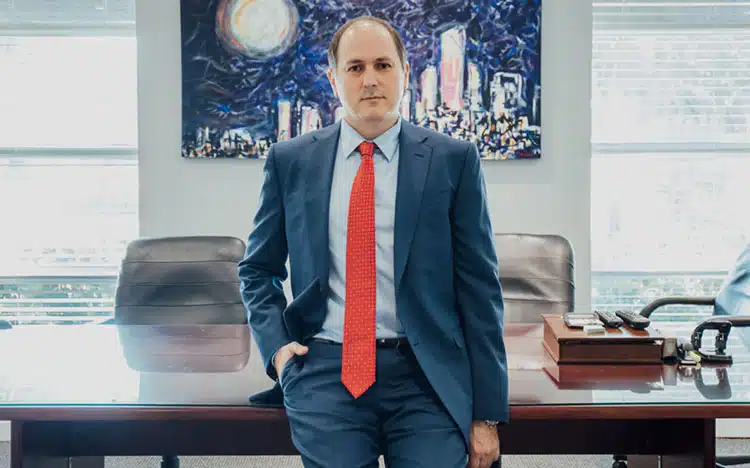When you’re behind on your mortgage, losing income to wage garnishment, or are struggling to make ends meet due to debt repayment, bankruptcy may be the best option to help you get back on your feet. When you need a Chapter 13 bankruptcy attorney to help you navigate the complex process, Stiberman Law is on your side.
Since 1998, Stiberman Law has been dedicated to helping people build a new financial future. With knowledgeable counsel, advice rooted in experience, and dedicated advocacy for your rights and best interests, our experienced bankruptcy lawyers and professional support staff work to secure the best practical outcome so you can move forward free from debt.
Chapter 13 bankruptcy is sometimes called a “wage earner’s bankruptcy.” Instead of a bankruptcy trustee selling your assets and using the proceeds to pay off creditors, which is the Chapter 7 bankruptcy process, Chapter 13 restructures your debt. With this method, your debts are rolled into a single monthly payment plan, including the amount you’re behind on your mortgage, student loan payments, credit card debts, and other unsecured debts. The payment you agree to make is based on your monthly disposable income.
Let’s look more closely at the Chapter 13 bankruptcy process so you know what to expect.
As soon as your Chapter 13 bankruptcy filing goes into effect, federal law requires that all debt collection attempts are placed under an automatic stay. Any debt collection attempt must stop, including letters and phone calls, wage garnishment, and legal proceedings.
During your case, you and your bankruptcy attorney will work together to provide the bankruptcy court with the following information:
Using the information, you and your bankruptcy lawyer will submit a repayment plan in which your disposable income after paying necessities must go toward paying off your debt. After you submit the chapter 13 plan, the bankruptcy judge assigned to your case can approve or deny it.
Once the payment plan is accepted, you’ll be assigned a bankruptcy trustee to disperse your monthly payment to creditors. Higher priority debt, including catching up on child support, student loans, and mortgage payments, are paid first, with unsecured, lower priority debt getting what’s left over.
The United States bankruptcy code requires at least three years on a repayment plan, but the judge may require up to five years of payments. To be in good standing, you must make your monthly payment to the bankruptcy trustee on time and in full. Once you’ve completed the determined time frame and required payments, eligible unsecured debt is discharged, absolving you of having to pay any more on the debt. You will also be caught up on your mortgage, car payments, and other debt you can’t discharge.
Get Immediate Legal Help
Schedule a free consultation by filling out the form below or Call us (954) 932-7804
Business Hours
Mon-Fri 8:00 am to 8:00 pm
Saturday 9:00 am to 6:00 pm
Speaking to our bankruptcy law firm is always 100% confidential.

All debt, including any amount you’re behind on your car loan or mortgage, is included in your Chapter 13 repayment plan so you can get caught up and back in good standing with your creditors, while also being absolved of certain debts at the end of the repayment period. However, bankruptcy laws have very strict guidelines regarding what debts can and can not be discharged.
Most unsecured debts can be discharged, including:
Debts that can’t be discharged in Chapter 13 bankruptcy include:
Filing bankruptcy is a complex legal proceeding that requires accurately filling out forms, declaring all types of income, and submitting a payment plan. Mistakes can be costly and extend the bankruptcy process if you try to navigate this independently.
Having an experienced bankruptcy attorney on your side ensures that you have legal counsel with in-depth knowledge who can assist you and advocate for you. Stiberman Law’s bankruptcy lawyers will analyze your finances, including your debt and income, to help you choose the best debt relief method, whether filing Chapter 13 bankruptcy, Chapter 7, or even debt consolidation.
Our bankruptcy law firm strives to make the process as smooth and stress-free as possible, including Our bankruptcy law firm seeks to make the process as smooth and stress-free as possible, including:

We understand Chapter 13 is complex, and you probably have many questions. To help you better understand whether this option is right for you, our bankruptcy lawyer is sharing our most frequently asked questions about this topic.
To file for Chapter 13 bankruptcy:
Federal bankruptcy law requires the United States courts to charge a $235 filing fee and a $75 administrative fee. You can pay in installments if you show proof of hardship. Bankruptcy attorney fees vary, but often, they will be included in your Chapter 13 repayment plan.
No. The goal of Chapter 13 bankruptcy is to keep you from losing any of your property while getting out of debt. If you have fallen behind on mortgage payments or the foreclosure process has started, your repayment plan can restructure the amount you are behind. You’ll continue making regular mortgage payments, but as long as you keep up with these and maintain your monthly repayment plan, you’ll get back into good standing with your lender and avoid losing your home.
Please get in touch with your bankruptcy attorney immediately if you need to catch up or miss payments. Your lawyer will inform you of the effects of falling behind, including a dismissal of your case or steps to modify your bankruptcy plan if it works to get current. Often, this means contacting the trustee to inform them of financial hardship. If you don’t address this issue, the bankruptcy trustee will report the delinquency to the court, where the judge may dismiss your case. Suppose your bankruptcy case is dismissed before completing the repayment plan. In that case, you will return to dealing with your creditors directly or convert to a Chapter 7 bankruptcy, where you may lose your nonexempt assets.
If you’re struggling to keep up with your bills or make ends meet due to credit card or medical debt, you need to speak with a Chapter 13 bankruptcy attorney in Palm Beach to learn more about your options. At Stiberman Law, we aim to help you overcome your financial problems so you can move forward confidently in your financial health. If you would like to schedule a free initial consultation, please call our law firm at (954) 932-7804 or fill out the form below to get started.
Speaking to our law firm is always 100% confidential. We do our best to respond to inquiries in under 24 hours.

We’ll get in touch as soon as possible.